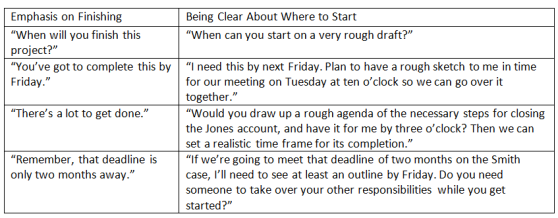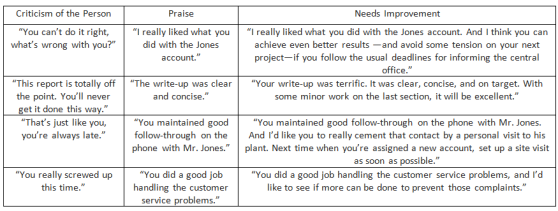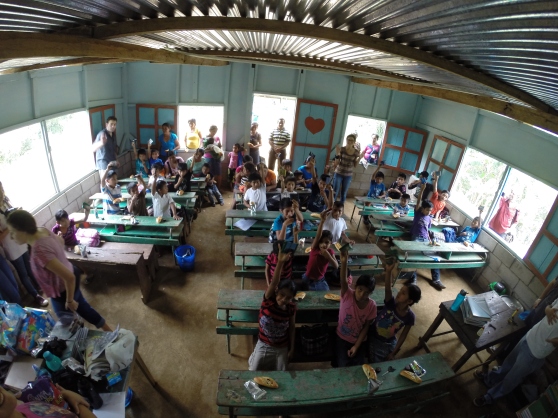Why do we procrastinate? Because we think that a task is too overwhelming or boring.
Are you doing something meaningful? Of course we have to work but don’t let a week pass by without you doing something that is very meaningful to you. Doing this is what makes you happy!
We always have a lot of things to do: Get organized and enjoy guilt free play.
What is the Now Habit? Focusing on the things that you can do, instead of feeling stressed, bad or overwhelmed by the things that are hard or that you can’t do. Be a producer, feel a producer and act as a producer.
New definition of Procrastination: We’ve had enough of self-criticism and breaking things into small parts as well as prioritizing. Being honest, procrastination makes sense if you are perfectionist or if you feel vulnerable about anything. What we need to overcome procrastination is another approach. An attitude of gratefulness and a positive attitude while we do work that is meaningful to us. “Procrastination is a mechanism for coping with the anxiety associate with starting or completing any task or decision.”
Ph.D. Niel Fiore to the rescue: Stop seeing work as something negative and apart from yourself that you just have to get done to survive. Work can be fun, meaningful and motivational. Fiore is not only giving us “how-to’s” but he offers a strategic system based on the dynamics of procrastination and motivation.
CHAPTER 1: WHY WE PROCRASTINATE
Remember that we are humanly imperfect. Reward yourself with something after you got something done. Why? Because we will always have something new in our to-do list so we better celebrate the things that we get done. We also shouldn’t forget that we are not our projects, so if something that we do goes wrong it doesn’t mean that there is something wrong with us. We are not our work. When we shift this paradigm out of our minds we start thinking and behaving as producers.

Being in the role of a victim also allows us to continue procrastinating by claiming that we are not the one responsible for our own lives.
We are not perfect but we are perfectly human.
We are sometimes fearful of failing or of getting out of our comfort zone, so we procrastinate or delay challenges as much as we can. In the end we are the only ones losing, lamenting and stressing out.
CHAPTER 2: HOW WE PROCRASTINATE:
Know how you spend most of your time and check how long it takes you to do specific tasks. Know your times, when you are productive, when you are not, notice when you do things and write them down. Keep a record from a week and then turn it into a procrastination log. In your log, examine your weekly record and try to answer to questions like: why am I delaying this task so much? Recognize the tasks or projects that you are skipping and divide them into small tasks that you can get going at the moment. Stop being scared and start creating. Your worth is not the same as the one of your performance. Have compassion with the fact that you are human and therefore not perfect. Remind this mantra to yourself every time that you are procrastinating out of fear. Be more adventurous and create, produce more and be scared less.
CHAPTER 3: HOW TO TALK TO YOURSELF
Focus on changing you inner dialogue, the language you use to express the things that you ought to do. If you alienate yourself from them as in saying that you have to do something that you rather not do, you are dividing yourself between a victim and an authority. In reality YOU are your only authority so whenever you choose to do something, tell yourself so. Saying and thinking that you have to do things leads to stress. As an adult that you are you have the power to decide what to do and to take responsibility for your decisions. Should’s are messages of depression because you are comparing a current state with something perfect that is not where you are now. Instead of focusing on blames and on comparison, focus your energy on results, what you have achieved and on a plan to get where you want to get.
“Whenever you catch yourself losing motivation on a project, look for the implicit “have to” in your thinking and make a decision at that moment to embrace the path—as it is, not the way you think it should be—or let go of it. It’s your choice.”
On your way to become a producer you will also need to learn how to say no.
Replace:
- “I must finish” with “When can I start?”
- “I have to” with “I choose to.”
- “This project is so big and important” with “I can take one small step.”
- “I must be perfect” with “I can be perfectly human.”
- “I don’t have time to play” with “I must take time to play.”
CHAPTER 4: GUILT-FREE PLAY, QUALITY WORK
The time for play and doing the things that you love the most isn’t a waste of time. It is a time where you can re-create yourself so that then you can work better. Unlike common gossip, the people who produce the most and who are more efficient in their work are also the ones that play more.
Children have no problems with motivation. A three-year-old will insist on being involved with sweeping the floor or helping with the dishes. It’s all play and learning for the child. But that native excitement about learning gets lost through the process of being taught how to conform to social expectations and that there is punishment for not conforming. There’s nothing particularly wrong with understanding social expectations; what’s so damaging is the insidious manner in which such teaching too often communicates that we are lazy and could be bad procrastinators. As Winston Churchill said, addressing a similar issue, “Personally I’m always ready to learn, although I do not always like being taught.”
CHAPTER 5: OVERCOMING BLOCKS TO ACTION
Waiting until you have a huge chunk of time to do the work in isolation that you need to get done is never going to help you. The costs of doing this are too high, so you rather use your opportunity cost procrastinating.
Push method vs pull method: Push concentrates on punishments, while the pull method takes a positive attitude of looking for solutions to a problem and on rewards. Pleasure and collaboration motivate us, rather than pain.
“to control your work habits you must make the periods of work shorter (less painful) and the rewards more frequent and immediate (more pleasurable)—interlacing short periods of work with breaks and rewards.”
Play hard so that you can work more efficiently!!
Sometimes, while you play, a solution to the problem you were trying to solve at work might come to you as a gift from your subconscious and as literally thinking outside the box. Having a positive attitude, an attitude of wanting to accomplish a mission.
Three major fears that we need to overcome:
- Terror of being overwhelmed
Possible solutions: three dimensional thinking and the reverse calendar: Plan things out, divide your big projects into next actions. There are many great places to start so don’t think too much on where to start and actually do start. Don’t wait until you have all the info to start a project, you will learn along the way! Instead of thinking about the “should-be’s”, have compassion with yourself and start off with grace on whatever you want to get done. Reverse calendar: set the deadline for your project, write down, and then go backwards with the actions that you need to get done, step by step.
- Fear of failure
The work of worrying: Tackle the fear of failure and the fear of being imperfect. Always do your best to carry on, even if presented with a terrible scenario. Prepare for the worst while you do everything that you can for the best.
Fear of not finishing:
Persisting Starting: Insist on approaching your problems with a solution; try to be aware of these things: Take a positive approach, ask yourself: when can I start?
CHAPTER 6: THE UNSCHEDULE
An unscheduled is a schedule where you include time for reacreation, socializing, breaks, play and where all of these have the same value as work. When you have a lot of fun things to do in your calendar, you realize that the time you have for work is scarce and so you need to use it wisely and effectively.
Set 30 minutes to figure out how to solve a problem or start working on the things that you have been postponing. It also works to fill in the time when you start really focused work and when you stop. To be productive reward yourself and focus on playing.
- Schedule only your time for re-creation. Do not include things from work.
- Fill in your Unschedule with work on projects only after you have completed at least one-half hour.
- Take credit only for periods of work that represent at least thirty minutes of uninterrupted work, if you stopped during the 28th minute, it doesn’t count. It’s also about discipline.
- Reward yourself with a break or a change to a more enjoyable task after each period worked.
- Keep track of the number of quality hours worked each day and each week. Sum them up. Emphasize what you accomplished. Reward yourself, feel proud of your work.
- Always leave at least one full day a week for recreation and any small chores you wish to take care of. Don’t feel guilty about re-creating yourself.
- Do not allow yourself to have an awesome time before first working for 30 minutes on a project.
- Taking a positive approach: Replace all thoughts about finishing with thoughts about when, where, and on what you can start.
- Think small. Aim for 30 minutes of quality focused work.
- Keep starting.
- In order to create good habits, reward yourself only after some work has been done. Do not avoid your projects, don’t stop when it gets hard.
Chapter 7. -WORKING IN THE FLOW STATE
We all have had times when our minds really get focused on what we are doing and we work a lot without really noticing that time has been passing by, without noticing anything besides what we are so consciously and effortlessly doing.
Temporary suspend criticism in order to start a project. Be as creative as you can be and remember that it is only your first draft. This means that whatever you are doing will be a work in progress; something that you can build upon and improve later. Concentrate on the present, let go of the past and future.
Chapter 8. -FINE-TUNING YOUR PROGRESS
Allow your mind to flow under the thought of procrastination. As you do this, notice the process of self-criticism and how it leads to guild and depression. This way you can also become aware of under what instances you are more likely to procrastinate.
To tackle procrastination use the techniques shown in this book: start by using a producers vocabulary (I will choose to start now), the unschedule and focusing exercises to get into a flow state much faster, focusing on the present with choice motivation and interest. If you don’t achieve all of these things, stand up and try again. You will also need to use “hardiness” which includes commitment, control, and challenge. Turn your difficulties into opportunities.
Concentration: It is not true that you can’t concentrate, what might be true is that you are not concentrated on the things that you ought or would prefer to be concentrate on at specific times. Dr. Martha Maxwell enumerates five types of distractions:
1. Strong emotions: whenever you are distracted by this kind of thought, give emotions your immediate attention. You might want to think for a while on what you can do to change the situation and you can write it down so that you can feel more relief.
2. Warnings of Danger: Often when we are stressed we think about threads and the terrible things that are going to happen to us if we don’t get to finish the work on time. Try to create a plan to make things happen and don’t feel pressured or agitated by this kind of distraction.
3. “To-Do” Reminders: When you are trying to get something done but the rest of the things that you still have to do start popping into you mind, write down the distractions so that you can relieve yourself from the burden of having to remember and deal with them later.
4. Escape Fantasies: When you have been working for a long time it is more like that you will have fantasies about food, sex or vacations. Record your fantasies and plan them for your guilt free play work in you unschedule.
5. UFOs-Unidentified Flights of Originality: Creative thoughts that are not useful to you at this time. You can let them go by or write them down and consider them latter.
Oh, remember that there is no path in life that requires no effort. Set specific, functional and observable goals that you can complete. It is energy dragging to write down huge list of things that you never complete. Freely choose your goals and when you choose them pursuit them with all of your guts and effort.
Chapter 9. -THE PROCRASTINATOR IN YOUR LIFE
This chapter is about how we live in a world where we often encounter procrastinators. Be it a family member, a co-worker, a friend, our spouse, etc. What we can do for them is model our standards, offer our support and help procrastinators be realistic. What we shouldn’t do is trying to decide what’s good for them or judge their moral standards. Remember that it is our problem and not theirs because many times other people don’t care about procrastination or don’t know what to do about it. Share with them the techniques that you learned in this book like using a reverse schedule to always be on time, etc.
Some things that people can try in work are: stating clear priorities, being decisive, being fair and frequent in the given rewards, and giving constructive feedback.






























